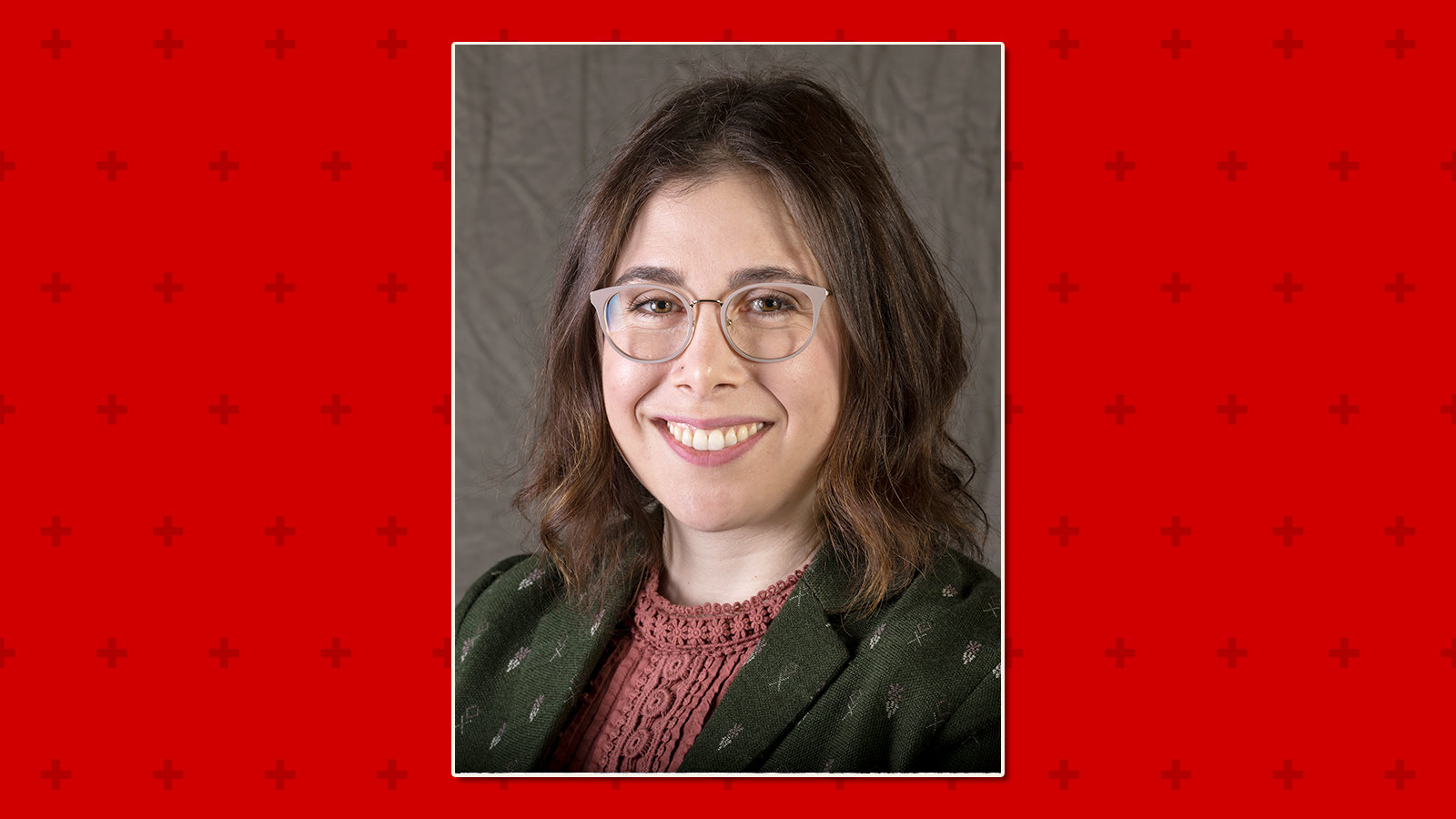
Naomi Rodgers embraces stuttering as she seeks to help others do the same
22 Oct 2019 By Kelcey Buck
Naomi Rodgers, a new assistant professor in the University of Nebraska-Lincoln’s Department of Special Education and Communication Disorders, doesn’t have to look far for motivation and passion for her work as a speech-language pathology faculty member dedicated to researching stuttering.
“I am a person who stutters. I had a phenomenal speech therapist when I was in high school and she was a person who stutters herself. She was the one who really inspired me to go into the speech-language pathology field.”
A native of Glencoe, Illinois, a suburb of Chicago, Rodgers wanted to get out of the city for college. She fell in love with the first school she visited and headed to the University of Vermont for her undergraduate work.
“I had gone to Vermont knowing that I wanted to go into speech-language pathology,” Rodgers said. “But, after a year, I started to second-guess whether I would be able to actually be a successful clinician because I stuttered. Who would trust me to help them if I still stuttered and apparently wasn’t able to help myself?”
Fortunately, Rodgers met Dr. Barry Guitar, now professor emeritus at the University of Vermont’s Department of Communication Sciences and Disorders. Guitar, also a person who stutters, is well-known for his stuttering research and reminded Rodgers of her value in the speech-language pathology field.
“He told me that our field needed me, that I needed to stay. He helped me understand that my stuttering would be an incredible asset as a clinician – that it would allow me to connect and empathize with clients who stutter in a really special way. As he got me involved in stuttering research and clinical work, I began to believe that what he said was true,” Rodgers said. “He was also the first to tell me that I had what it takes to get my Ph.D. someday. I wouldn’t have ever thought about going this far in my education if not for his encouragement.”
Stuttering occurs when a person experiences interruptions in the forward flow of speech. It manifests as sound repetitions, prolongations, or blocks. Rodgers notes that while around 5% of young children will stutter between the ages of 2-5, around 80% of those children will outgrow it without any speech therapy. All told, about 1% of the population will stutter for the rest of their lives.
Stuttering stems from the brain, but its causes and manifestations vary from person to person. Then there’s the unpredictability. Rodgers, herself, notes that certain sounds tend to be triggers for her, but then there are times she says them completely fluently. The variability is part of what makes stuttering complex – both from the perspective of the speaker who stutters and the speech-language pathologist who is trying to help the client work with their stuttering.
But what really interests Rodgers about stuttering are its social and emotional impacts. Once again, she credits her high school speech-language pathologist for helping her recognize the importance of this aspect of stuttering.
“She understood that addressing the social-emotional component of stuttering was really important for me,” Rodgers said. “I wasn’t particularly interested in working on speech strategies to make me sound more fluent. I really just wanted someone to help me sort out all the internal baggage I had accumulated about stuttering.
“Over the course of my adolescence and early adulthood, a big part of my change process has been to be very open about stuttering. What’s interesting about stuttering, from my experience both personally and clinically, is that the more someone works on embracing how they talk, the easier talking becomes.”
That change process has helped inspire Rodgers in her research. One area of her work studies how people who stutter process social information – things like negative listener reactions to stuttering. The other area aims to understand how people who stutter get ready for therapy or get ready to make a change to their stuttering. Rodgers has been working with a team at the University of Rhode Island Cancer Prevention Research Center to apply the “Stages of Change” model to stuttering management. This model is the idea that a person’s readiness to manage their stuttering plays an important role in their change outcomes.
“When a person shows up at the clinic saying they want help with their stuttering, clinicians often assume that they’re ready to hit the ground running to use speech tools for speaking more fluently or stuttering with less struggle,” Rodgers said. “But more often than not, people who stutter are ambivalent about the change process – they see the pros and cons of changing how they talk. We’re trying to determine whether people who stutter cognitively move through the stages of readiness to make a change to their stuttering.”
That question was established by Rodgers’ doctoral mentor at the University of Iowa, Dr. Tricia Zebrowski, who has since retired. Rodgers is eager to continue this line of inquiry because she has found that it resonates with so many people who stutter, as well as speech-language pathologists.
“My long-term goal is to better understand the psychosocial aspects of stuttering across the lifespan for people who stutter, and to improve their functional outcomes in those domains.”
After completing her master’s and doctorate at the University of Iowa in 2012 and 2019, respectively, Rodgers is excited to begin her career at Nebraska.
“I knew this would be a place where I could really establish myself with a strong foundation of support within the department, as well as within the college, university and community. I’m excited to expand the stuttering community here in Lincoln.”
Special Education and Communication Disorders